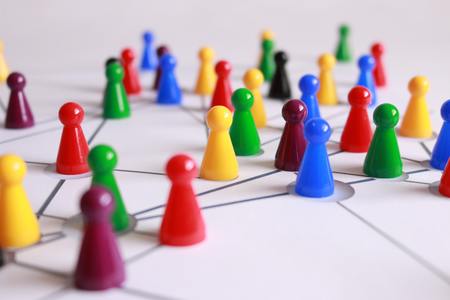
Gamification, enhancing the event experience or a distraction?
Gamification is the application of game mechanics to non-game environments such as digital events and websites with the objective of increasing participation. Many event organisers have incorporated gamification into their events as an added immersive experience. But is gamification a fad or a real trend? Games within events aim to educate, entertain and engage. However, is gamification enhancing the attendee's experience or distracting them from the main event objectives?
What gamification elements are events using?
The common game elements used at events are;
- Points
- Badges
- Leaderboards
Having had many discussions around the topic and conducting our research we've found the events industry to be quite divided on the matter. Some argue gamification adds no value, while others feel it has added to their event experience. Many argue gamification doesn't work and is not adequate to help reach event goals and objectives.
Those who argue gamification doesn't work state that it is because gamification is a work-in-progress and has not yet been perfected. Technology trends are changing at a rapid speed such as event and marketing trends. As event technology continues to advance, we as consumers are becoming more demanding, and our expectations from technology are higher. The same applies to event attendees and event organisers. The attendee is constantly seeking new digital experiences and events are constantly seeking new digital solutions to feed that hunger and remain competitive. As a result, events are incorporating gamification because they think it's the next best thing, rather than thinking about what value it brings to the event. Events are constantly seeking solutions that provide attendees with original and unique experiences however technology for technology's sake is not the answer. Gamification must mean something to people, and make them think deeper. It should spark discussion around the event topics so that games are relevant rather than becoming an unnecessary distraction. Gamification needs to be fun but also needs to impact ROI otherwise there's no point to it. Too much gamification at an event can distract the attendees from the content and core purpose.

Successful gamification
Done right gamification can add real value to your events, enhance the event experience and increase ROI. Gamification can highlight sponsors and important causes. So how can gamification be done right?
Choose an event management platform with quality networking capabilities. You can then encourage attendees to play short quizzes and trivia which are great icebreakers. Friendly quizzes can be a great way for attendees to get to know each other. Notify attendees of the games before the event to create buzz and encourage engagement with the games. Attendees are more likely to participate in games if they are aware of them beforehand.
Try and incorporate games at the beginning of the event to break the ice, and encourage networking. Once the games are out of the way the attendee's focus will be on the key speakers and content.
Don't overload the event with games and contests, choose one or two that relate to the event topic and content. This way attendees are constantly thinking about the event content rather than being pulled away from it.
Rewards are a great way to incentivise participation. Attendees are more likely to engage in games if their achievements are acknowledged and rewarded. However, rewards for gamification need to be top-down and always relate to the purpose of the event. Rewarding attendees for attending sessions, streaming content, visiting booths or stands and asking questions is a great way to engage attendees but keep their focus on the content. Keeping the game relevant to the content will also make the experience feel more organic and less staged. The attendee will feel like the game itself has a purpose and contributes positively to their experience, rather than a game being there for the sake of it. Adding competition and rewards can increase social media exposure during and after the event resulting in increased participation in future events. Gamification can also provide sponsors with higher value.
Virtual escape rooms or scavenger hunts can provide attendees with enjoyment and entertainment but can also act as a large distraction. Refer back to the event objectives and ensure the games are relevant and do not remove attendee attention from the purpose of the event. If the objective of the event is to promote teamwork, then fantastic, online escape rooms encourage individuals to work together; however, if the purpose of the event is to deliver thought-provoking content and discussions then avoid it.

Gamification can work if well thought out. If you are considering incorporating games be sure that the games will complement the content rather than removing the attendee's focus away from it. What are your objectives for doing it? Is it just another box-ticking exercise? Gamification should be a strategic decision that contributes to growth and increased revenues.
Book a demo with a member of the Evessio team to find out how Evessio can help your digital events generate revenue

Claire Singleton
Marketing Manager
Claire is the Marketing Manager at Evessio, an industry-leading event management platform for awards, conferences and exhibitions. Claire has years of experience and specialises in marketing event software, marketing events and sponsorship. Claire has a proven track record of re-branding events and implementing strategies that doubled event participation.

